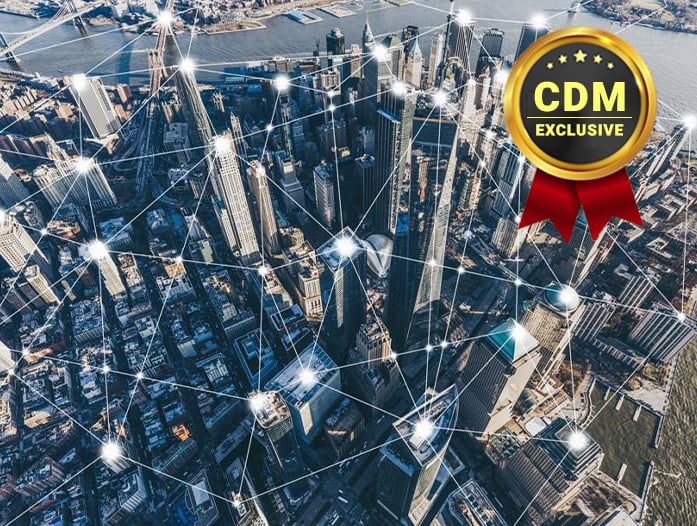Consumers want cybersecurity protection and they consider their CSPs as potential partners
By Barry Spielman, Director of Product Marketing, Allot
Most people are utterly unprepared for cyberattacks. Most people will be affected by cyberattacks. Fortunately, most people have the potential to thwart many or most of the cyberattacks that target them. The problem is that they don’t yet know about the defensive weapons that are starting to become available from the very vehicle that brings cyberattacks to their devices. I am, of course, referring to communication service providers, or CSPs. The telecom carriers and Internet providers who bring connectivity to your home, office, and right to your fingertips when you’re on the go are the perfect solution providers for the ubiquitous cyber threats that are increasingly plaguing businesses and individuals around the globe.
With the cost of cybercrime, according to one estimate, expected to rise to $10.5 trillion USD annually by 2025, compared with $6 trillion USD in 2021, there is no real way for crime fighters to outspend the cybercriminals. But crime-fighting is not the most effective way to combat cybercrime. It would be far more effective to find a way to block the criminals before their attacks reach their targets. Now, you might say that these methods have been around for years. But if they were effective, wouldn’t the cost of cybercrime be dropping?
The truth is that cybersecurity solutions for regular people are missing an element that causes them to be far less effective than they need to be. It’s not that they are lacking in technology standards or features. There are many consumer cybersecurity solutions that are very good at what they do. The problem is that people either don’t use them properly or don’t use them at all. It’s hard to pinpoint why that is exactly. But it probably lies somewhere between the fact that people are just busy with their lives and don’t get around to cybersecurity tasks and the fact that there are so many options available that people don’t know which ones are reliable.
When it comes to cybersecurity solutions for large enterprises, no expense is spared. There are teams of professionals using an array of advanced tools to block, isolate, eliminate and prevent infections and attacks. Meanwhile, as robust and effective as consumer tools for cybersecurity might be, the vast majority of consumers lack the skills and even the basic knowledge to protect themselves properly, even with a wide selection of available tools. What’s more, regular people need to be protected from infection and attacks when they are connected to their mobile networks, in their home networks and when connected to guest Wi-Fi networks. They need to protect all their devices, all of the time.
One particular vulnerability comes from IoT devices in people’s homes. The number of IoT devices ranging from home appliances, to surveillance devices and home automation, is skyrocketing. Each device acts as an open door for cybercriminals to invade people’s home network. With limited CPU and memory, most IoT devices are designed with little or no capacity for security measures. Since passwords are often left as the default, if there are passwords at all, IoT devices make easy entry points into the network, giving cybercriminals access to personal data and other digital assets. These and other vulnerabilities leave consumers wide open to attacks and infections.
That doesn’t mean that regular people are not interested in protecting themselves. In a recent survey by Allot and Coleman Parkes Research, consumers expressed concern with virus infection (62%), loss of privacy (59%), loss of sensitive data (59%), phishing attacks (51%) and other consequences of cyber threats. In fact, they responded that they would, on average, be willing to pay $4.74 per month for a comprehensive cybersecurity service provided by their CSP. However, in North America, 53% of respondents said that they were not investing in securing their Internet-connected devices because they did not know how to do it. In other words, consumers are concerned about cyber threats, and they are willing to pay to be protected as long as it is easy.
In the same survey, 90% of respondents globally said that they believed that their internet provider should also provide the security to protect them when they use the Internet. In fact, 68% said they would switch providers to be on a more secure network. This raises the question: Where should consumers get their cybersecurity protection?
Based on the responses of consumers, there is good reason to believe that communication service providers can provide cybersecurity protection services that their customers will trust enough to subscribe and use. This can be the case as long as the price is right and subscribers do not have to do much to take advantage of these services. As it turns out, CSPs are perfectly positioned to provide cybersecurity services that can meet all the requirements of their customers.
CSPs can integrate cybersecurity services into their network infrastructure and use the tools that they already have for fast, widespread provisioning of services. When the solution sits in the network, as opposed to the customer’s end device, it can block attacks before they reach and affect the device. Network-based also means that the service can be ‘zero-touch’. In other words, people are protected without having to do anything: No downloading, no installation, no configuration necessary. A CSP’s customer can simply say yes and the service is activated. But if those aren’t good enough reasons for a CSP to consider offering cybersecurity services, they might be encouraged by the potential of generating recurring revenue from a service that has proven to be wildly popular with consumers when it is made available to them by their CSP.
At Allot, we have seen upwards of 50% uptake on network-based cybersecurity services offered by CSPs. With numbers like that, not only can a CSP differentiate their brand as a security provider, they can also earn a significant amount of supplemental revenue with cybersecurity service offerings to consumer mobile customers and home network customers. With solutions that offer 360-degree protection, A CSP can offer a comprehensive service that protects customers where ever they are and on any device. That could be an important step toward eliminating cyber threats in the consumer market.
About the Author
 Barry Spielman, Director of Product Marketing, Allot
Barry Spielman, Director of Product Marketing, Allot
Barry Spielman is the Director of Security Product Marketing at Allot. Prior to joining the Allot team, Barry held marketing management positions at networking and cybersecurity companies including Sixgill, Verint, and Gilat Satellite Networks. He holds a BA in Political Science from Bar Ilan University, an MA in International Relations from George Washington University, and an MSM in Business Administration from Boston University.
Barry can be reached online at ([email protected]) and at our company website http://www.allot.com/


